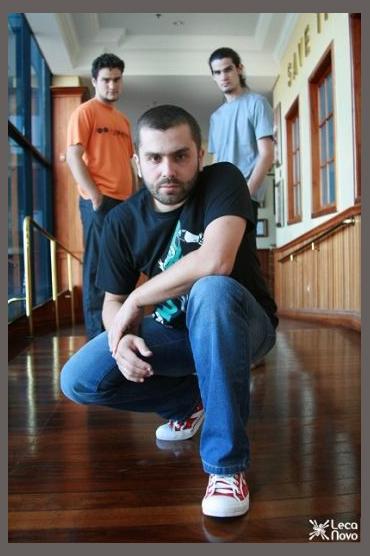 F.R.E.U.D
F.R.E.U.D
F.R.E.U.D.: A Journey of Musical Exploration and Controversy
Emerging from the vibrant musical landscape of the early 2000s, F.R.E.U.D. (pronounced "Freud") captivated audiences with their enigmatic lyrics and provocative themes. Their iconic song "Ana" became an anthem for those struggling with eating disorders, sparking both critical acclaim and a whirlwind of controversy.
Formation and Influences:
Formed in 2001, F.R.E.U.D. was the brainchild of lead singer and songwriter Krystle Warren. Inspired by the works of Sigmund Freud and the psychological complexities of the human condition, the band sought to explore the depths of emotion and mental health through their music. Their eclectic influences ranged from experimental rock to alternative metal, creating a unique and unforgettable sound.
Members:
* Krystle Warren (lead vocals, guitar)
* Jason "Kid" Villari (guitar, vocals)
* Chris Griffiths (bass guitar)
* James "Stix" Strickland (drums)
Discography:
F.R.E.U.D. released two studio albums:
* The Only Thing Worse Than Death Is Dying Slowly (2003)
* Mirror Mirror (2005)
Challenges and Controversies:
F.R.E.U.D.'s music often delved into taboo subjects, including mental illness, substance abuse, and self-harm. Their song "Ana" was particularly controversial, as it was interpreted by some as promoting anorexia. The band faced criticism from certain quarters for allegedly glorifying eating disorders.
Despite the controversy, F.R.E.U.D. maintained their artistic integrity. They argued that their music was intended to raise awareness of mental health issues and provide a voice for those who struggled silently.
Critical Acclaim and Legacy:
Beyond the controversy, F.R.E.U.D. received critical acclaim for their innovative songwriting and raw emotional power. Their music resonated with listeners who identified with their struggles and found solace in their lyrics.
While the band disbanded in 2007, their legacy continues to inspire and provoke. Their music remains a testament to the transformative power of art in addressing difficult and often stigmatized topics.
Emerging from the vibrant musical landscape of the early 2000s, F.R.E.U.D. (pronounced "Freud") captivated audiences with their enigmatic lyrics and provocative themes. Their iconic song "Ana" became an anthem for those struggling with eating disorders, sparking both critical acclaim and a whirlwind of controversy.
Formation and Influences:
Formed in 2001, F.R.E.U.D. was the brainchild of lead singer and songwriter Krystle Warren. Inspired by the works of Sigmund Freud and the psychological complexities of the human condition, the band sought to explore the depths of emotion and mental health through their music. Their eclectic influences ranged from experimental rock to alternative metal, creating a unique and unforgettable sound.
Members:
* Krystle Warren (lead vocals, guitar)
* Jason "Kid" Villari (guitar, vocals)
* Chris Griffiths (bass guitar)
* James "Stix" Strickland (drums)
Discography:
F.R.E.U.D. released two studio albums:
* The Only Thing Worse Than Death Is Dying Slowly (2003)
* Mirror Mirror (2005)
Challenges and Controversies:
F.R.E.U.D.'s music often delved into taboo subjects, including mental illness, substance abuse, and self-harm. Their song "Ana" was particularly controversial, as it was interpreted by some as promoting anorexia. The band faced criticism from certain quarters for allegedly glorifying eating disorders.
Despite the controversy, F.R.E.U.D. maintained their artistic integrity. They argued that their music was intended to raise awareness of mental health issues and provide a voice for those who struggled silently.
Critical Acclaim and Legacy:
Beyond the controversy, F.R.E.U.D. received critical acclaim for their innovative songwriting and raw emotional power. Their music resonated with listeners who identified with their struggles and found solace in their lyrics.
While the band disbanded in 2007, their legacy continues to inspire and provoke. Their music remains a testament to the transformative power of art in addressing difficult and often stigmatized topics.